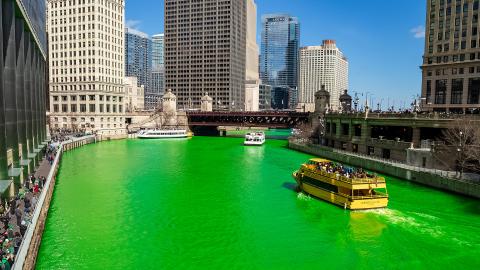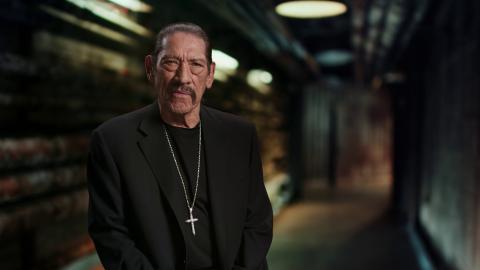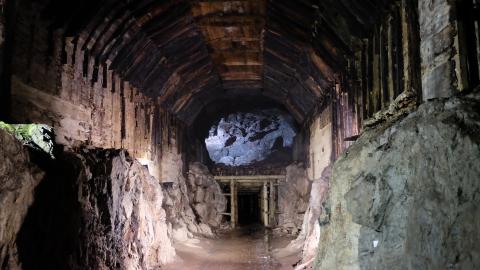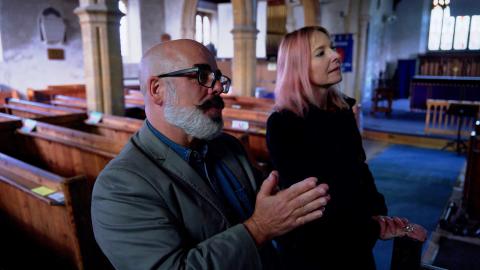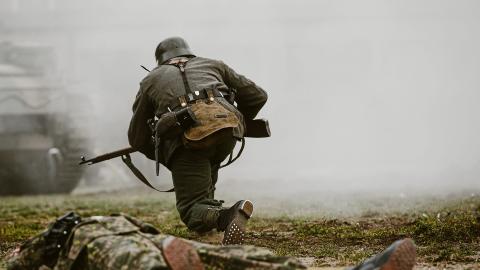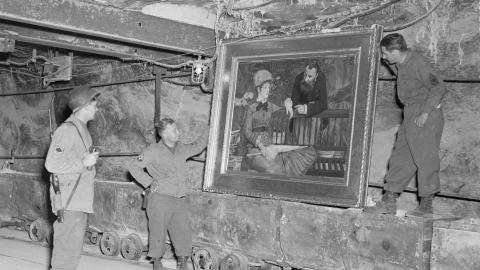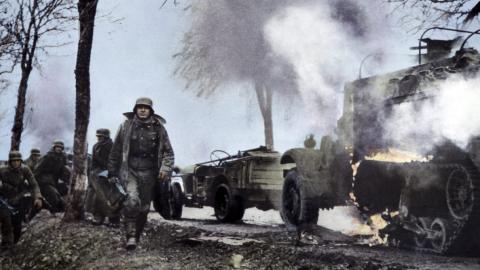Originally from St Elizabeth, Jamaica, John Jellicoe Blair was one of almost 500 Black Caribbean air crew in the RAF during the Second World War. In the film below (part of a series of shorts commissioned by HISTORY for World War True Season) his great-nephew Mark Johnson looks back on his legacy.
John “joined the RAF in 1941 and became a navigator in Halifax Bombers flying from Yorkshire,” Mark tells HISTORY. “Prior to 1940 the British Forces had something in place called the ‘Colour Bar.’ This stipulated that only British men of European descent could be officers in her majesties armed forces. However, after the calamity of 1940 and the losses suffered by the RAF in the Battle of Britain they lifted the ‘Colour Bar’ and stared recruiting men from the Caribbean and from West Africa.”
After this the RAF became fully integrated, as Mark tells HISTORY, “You would find in a single airplane a pilot from the North of England, a navigator from the Caribbean, a tail gunner from India and a Welshman as radio operator.”
Race was something that John was always aware of during the war. As Mark says, “My great-uncle flew 33 operational missions over Europe during the war and each time he climbed in that aircraft he knew that if they went down, whereas his white crewmates would most likely be taken to a prisoner of war camp, he would be shot on the spot. A black man landing in those circumstances had almost no chance of survival.”
“He made one thing clear,” Mark says of his great-uncle, “if Britain lost the war we would return to slavery. While we didn’t like the British Empire, we certainly didn’t want the Nazi Party coming down and running Jamaica for us.”
Mark remembers his great-uncle fondly, “My great-uncle was a hero. The story of John Blair and others like him is important because what it says is that we can integrate. Even in 1941 we could overcome far more entrenched barriers then we face today. Everyone could take part and everyone was able to be part of a team when facing a crisis. This is a lesson for the youth today, the barriers are there but they can be overcome and people can adapt and society can change.”

